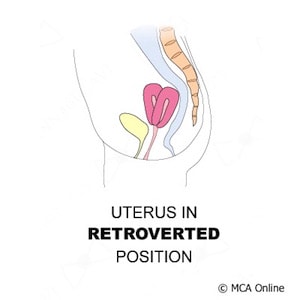What is a Tilted Uterus & How Do You Know If You Have One?
Having a tilted uterus is very common, affecting about 1 in 5 women. Yet, most of the time a tilted uterus won’t cause any issues, including any problems getting pregnant. In fact, most women with a tilted uterus won’t even know they have one.
But what exactly is a tilted uterus? How can you find out if you have one? And will it impact whether or not you can use a menstrual cup? In this article, we’ll dive into the answers behind these questions and more.

What is a Tilted Uterus?
Typically, the uterus is tipped forward beginning at the cervix. In contrast, a tilted uterus, also called a tipped or retroverted uterus, is tilted backward starting at the cervix.
While, as previously mentioned, many women have no symptoms and often no idea that they have a backward tilted uterus, sometimes, symptoms do arise including:
-
Lower back or vaginal pain during intercourse
-
Menstruation pain
-
Difficulty inserting tampons
-
Increased urination frequency
-
Frequent urinary tract infections
-
Lower abdominal protrusion
-
Consistent leaking while using a menstrual cup, despite having tried all tips and different brands/styles
Many women are born with this condition since it is a normal anatomical variation. The common theory behind why it happens comes down to your genetics. However, other underlying causes may also contribute to a tilted uterus. For example, endometriosis and pelvic inflammatory disease may both cause scar tissue, which may lead to the backward position of the uterus.

How Can You Find Out If You Have a Tilted Uterus?
Wondering if you have a tilted uterus? At your next routine pelvic exam, your doctor should be able to tell you whether or not your uterus is tilted. The doctor is able to do this by gently pressing his or her fingers against the uterus from within the vagina, while at the same time placing a hand on top of the abdominals. This should clap the uterus in between the fingers and hands, allowing them to understand it’s size, shape, and position.
However, if you have any pain during sex or symptoms as described above, it’s likely a good idea to book a visit with your doctor as soon as you can to determine what is really going on.
Using a Menstrual Cup With a Tilted Uterus
When it comes to the body, the truth is that everyone is different. There are many women with tilted uteruses that have no issue with using a menstrual cup. However, for others, it may take a few tries to get used to the cup and to understand where the best position is for it. You may need to practice with different angles, which may take a few different menstrual cycles to get right. This further means that it may be best to wear a liner or pad when first trying out any menstrual cup – just in case of leakage!
Ideally, a menstrual cup should sit just below the cervix, and it should not cause any discomfort. Some experts recommend, especially for tilted uteruses, to insert the cup slightly lower. Further, some users also find propping a leg up to insert the cup helps. Either way, it should still be able to seal that area within your vaginal canal. For a woman with a tilted uterus, it may also be an option to go with a smaller size menstrual cup, especially if it sits lower down. However, we would generally NOT recommend trying a smaller size if you have a weak pelvic floor or have given birth vaginally.
In addition, menstrual discs (such as the nixit, Ziggy Cup, or Lumma Cups) may also provide an option for a woman with a tilted uterus who has not had success with multiple tries of a regular style menstrual cup. This is due to the softer and more supple design of menstrual discs. The extra softness makes them fit perfectly to almost any type of vaginal fornix, which is the superior portion or arches of the vagina near the cervix. These discs also sit higher (within the vaginal fornix) rather than lower down in the vaginal canal, which may make it more comfortable and easier to use for some women.
Overall, it really depends on you and what works for you and your uterus. At MCA Online, we have a variety of menstrual cups to choose from. The only way to find out if it works for you is to try it out!
